Septic Tank Maintenance: Why It’s Essential
It’s easy to forget about septic tanks – they’re out of sight and mind. But neglecting septic tank maintenance is akin to driving a car without oil. The consequences will be dire sooner than later!
Septic tanks are essential to maintaining the health and safety of your home and family. However, the risk of costly septic repairs or replacement increases exponentially without regular maintenance. Not only that but failing to maintain your septic system properly can also have serious environmental implications!
So how do you ensure your septic tank stays healthy? By understanding why it’s important, knowing what goes into proper maintenance, and staying on top of regular inspections and septic tank pumping service. With these three steps, you can keep your septic system running smoothly for years to come – like a well-oiled machine!
What Is A Septic Tank?
A septic tank is a buried container that holds wastewater from a home or business. It collects and separates solid waste, which breaks down naturally in the tank. The liquid waste is discharged through a system of pipes into an absorption field, also known as a drain field or leach field, where the soil filters it. Septic tanks are often the only type of sanitation available in rural areas, but they can also be used in urban settings.
To keep the septic system working properly, upkeep must be performed to ensure it remains free from clogs and other blockages. This involves pumping out the solid waste that accumulates over time and replacing any filters that have become worn down or broken. It’s also essential to check for leaks, as any water escaping from the tank can cause contamination of groundwater sources nearby. Lastly, repair any damage to the tank walls or floors due to shifting soil or wear and tear over time.
Having a basic understanding of what a septic tank is and what its general maintenance requirements are is essential for homeowners who rely on them for wastewater management.
General Maintenance Requirements
Contrary to popular belief, septic system maintenance isn’t just an option – it’s essential. After all, if you don’t take care of your septic tank, it won’t take care of you! Ignoring your septic tank can quickly become clogged and cause expensive repairs or even system failure.
Fortunately, you can take some simple steps to keep your septic system in tip-top shape. The most important thing is to be aware of the warning signs that indicate a problem.
If you notice any unusual odors or standing water near the leach field, this could indicate something is wrong. Make sure to have your septic system inspected regularly so any potential issues can be addressed before they become major problems.
In addition to regular inspections and cleanings, there are other preventative measures you should take as well:
- Regular inspections and cleanings
- Being conscious of what goes down your drains and only flushing human waste and toilet paper down the toilet
- Being mindful of water usage to avoid overloading tanks and backups
- Avoiding drain cleaners or chemical drain openers, which can kill good bacteria and damage the tank.
With proper care, routine inspections, and cleanings, you can ensure your septic tank remains healthy for the long haul.
Routine Inspections And Cleanings
Routine inspections and cleanings of septic tanks are essential to maintain proper functioning. These regular checkups are necessary for a tank to avoid becoming overwhelmed with solids, leading to repairs or even replacement.
During an inspection, a professional will check the interior of the tank for sludge build-up and other issues that may arise. If this is found, they can recommend cleaning or pumping services that help keep the tank from becoming blocked.
Having your septic tank pumped out regularly is also crucial as part of routine maintenance from a licensed and insured septic service provider. This helps reduce the amount of solids in the tank and prevents clogs or other problems from occurring. Again, a professional should be consulted when considering septic system services, as they can advise on the best course of action for your specific situation.
The Process Of Pumping Out A Septic Tank
Amazingly, the average household septic system can have 1250 gallons of wastewater or more at any time. That’s why pumping out a septic tank is an essential part of maintenance.
It’s important to know that septic tank pumping is a three-step process. First, the septic professional will arrive and assess the situation. They will inspect the system before they start work and make sure that everything is working properly.
Second, they will pump out all of the waste material inside the tank to get it back down to its normal levels. Finally, they’ll check for any potential signs of damage or wear and tear during this process and make any necessary repairs or adjustments if needed.
Benefits Of Regular Maintenance
Now that we’ve gone over the septic pumping process, it’s time to discuss why regular maintenance is so essential. First, without maintenance, an unmaintained septic system can cause environmental damage due to groundwater contamination with sewage and other harmful materials. This can lead to serious health issues for people living in the area as well as long-term ecological consequences.
Second, maintenance helps keep your septic system running smoothly. That said, it is essential to stay on top of your septic systems and have them inspected regularly.
Doing so will help prevent any major issues and ensure your family has a functioning septic system so you can avoid more severe problems while ensuring your family’s safety at home.
Identifying Potential Problems
Ah, the age-old question: What is the most important thing in life? Of course, it’s septic system maintenance. Without system maintenance, your home will soon become a cesspool of disaster – and no one wants that!
But how do you know when something is wrong with your septic tank? Well, there are several signs to look out for:
- Foul odors: Unpleasant smells coming from drains, toilets, or other plumbing fixtures.
- A sewage-like smell coming from outside your home.
- Pooling water on the lawn near the tank or leach field.
- Gurgling noises from inside pipes when flushing toilets or draining sinks.
- Slow drainage in sinks and tubs that don’t clear up after a few minutes of running water.
If you notice any of these signs, it’s time to call in a professional plumber to assess the situation and recommend a course of action for repairs and maintenance.
Ignoring these problems can cause costly damage to your septic system and the environment if left unchecked. So be sure to keep an eye out for potential issues with your septic tank!
Impact On The Environment
Now that you understand the potential problems associated with septic tanks, it’s important to consider the environmental impact of neglecting proper maintenance.
Poorly maintained septic systems can have a severe negative effect on the environment if not managed properly. Waste materials can build up in the tank, leading to contamination of local water sources. The bacteria and chemicals in untreated wastewater can pose a health risk for humans, animals, and plants.
Not only does improper maintenance of a septic system cause contamination of local water sources, but it also increases the risk of other environmental disasters. For example, if the wastewater from a tank is not adequately filtered or treated before being released into nearby rivers or lakes, there may be an increased risk of algae blooms and fish kills due to nutrient overload. In addition, soil erosion caused by runoff from septic tanks can lead to further environmental damage.
The best way to protect the environment is through routine maintenance and inspection of your septic system. Simple steps such as keeping maintenance records, pumping out solids periodically, and making sure all components are functioning properly will help prevent any major issues from occurring.
However, without maintenance and inspections, you run the risk of causing significant damage to your local environment. With that in mind, let’s look at the financial costs associated with maintaining a healthy septic system.
Costs Of Maintaining Septic Systems
Maintaining your septic tank is an essential task that can save you a lot of money in the long run by avoiding a potential septic system failure. Knowing the costs of septic maintenance and how to get the most out of a professional service is important.
The cost of a septic tank cleaning will depend on the size of your tank and how often it needs to be emptied. Generally, professional services charge anywhere from $200 to $600 for a basic inspection, cleaning, and pumping. Depending on the type of system, you may also need additional services such as repairs or replacements. Check with your local municipality for specific regulations and requirements that might affect your costs.
It’s also important to consider if there are any DIY options available for maintaining your septic tank. Several products on the market are designed specifically for septic tanks, which can help reduce maintenance costs significantly. However, keep in mind that while DIY solutions may offer some savings, they come with their risks, so it is best to consult an expert before attempting any repairs or maintenance yourself.
Having a regular inspection and maintenance plan in place is essential for keeping your system working efficiently and avoiding costly problems in the future. Doing research into different options can help you find the right balance between cost-effectiveness and quality service when it comes to septic maintenance.
With this knowledge, you can move on to the next step: deciding whether DIY or professional services are better suited for maintaining your system.
Diy Vs. Professional Services
When it comes to maintenance, some homeowners prefer to do the job themselves. DIY solutions are often cheaper than professional services and can be completed quickly. But, it is crucial to consider that a professional would have far more experience in understanding the nuances of septic tank maintenance and ensuring the job is done correctly. Professionals can also complete the job faster due to familiarity with the process.
Moreover, a professional may have access to specific tools and equipment that could make difficult jobs easier. With their help, you can rest assured that your septic tank will be properly cared for and running smoothly. On the other hand, if you opt for a DIY solution, you may need to buy additional materials or rent specialized tools depending on the tasks required.
Therefore, when deciding between a DIY solution and hiring a professional for septic tank maintenance, it’s important to weigh both options carefully before making your final decision. Besides, it’s a DIRTY JOB, and do you REALLY want to mess with it?
Location And Accessibility Considerations
Location can be an essential factor when considering the maintenance of a septic tank. It might need to be moved if the location is too close to buildings, water sources, or other features that may interfere with drainage.
Accessibility is also key for pumping and inspection purposes. Access may require a special vehicle or digging trenches to reach the tank, depending on the terrain and topography. It’s essential to check if there are any restrictions on digging in the area before proceeding with excavation work.
The type of soil can also affect accessibility; if there’s dense clay present, it might make digging more difficult or impossible. The local climate should also be taken into account; areas prone to flooding could also cause complications when accessing the tank.
Finally, it’s important to determine who will be responsible for maintaining the septic system and what kind of insurance coverage they have in case something goes wrong.
Considering these factors ahead of time helps ensure that your septic system is maintained correctly and functions at its best. The next step is to understand the regulations for septic system care in your area.
Regulations For Septic System Care
Maintaining a septic tank is essential, and to do so, certain regulations must be followed. These regulations vary from state to state but generally include the following:
- Not flushing non-biodegradable items into the tank
- Having the tank inspected regularly
- Pumping out the tank when needed
- Installing a filter to keep solids from entering the leach field.
Follow these regulations to avoid the replacement of the entire system.
Additionally, local health departments often have their own set of regulations that should also be followed. Homeowners must familiarize themselves with their local laws and abide by them to ensure their septic system remains in good working order for many years.
Avoid Poor Septic System Maintenance
Now that you know maintaining a septic tank is essential for a safe and healthy home, regularly pumping and servicing your tank will save you money in the long run by avoiding unexpected repairs.
Furthermore, it’s important to be aware of the warning signs that your septic system needs attention and understand how a poorly maintained septic system can impact your neighbors and the environment.
As the old saying goes, an ounce of prevention is worth a pound of cure. When it comes to septic tanks, proper maintenance can prevent expensive repairs down the line and keep your family safe from potentially hazardous waste.
Whether you choose to maintain your tank yourself or hire a professional, staying on top of this maintenance routine is important. It may seem unnecessary now, but I guarantee it’ll be worth it. So don’t wait – make sure you’re doing all you can to keep your home’s septic tank running smoothly!
Ask Us About Our Senior discounts, Veteran discounts, Military discounts, Law Enforcement discounts, First responder discounts, and Teacher discounts. *Some restrictions apply.
Trusted Professionals
Licensed & Insured Plumbers
CA Lic.#1010329, C-36 Plumbing Contractor and C-42 Sanitation Contractor.
✅ For your trust and safety you can verify our CA Contractor license & classifications HERE






